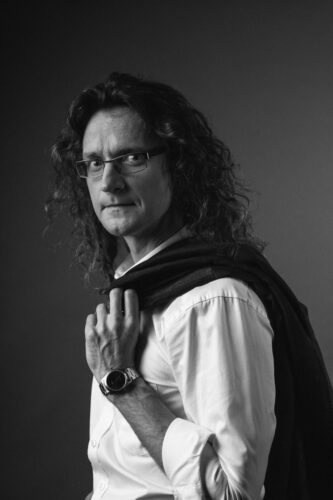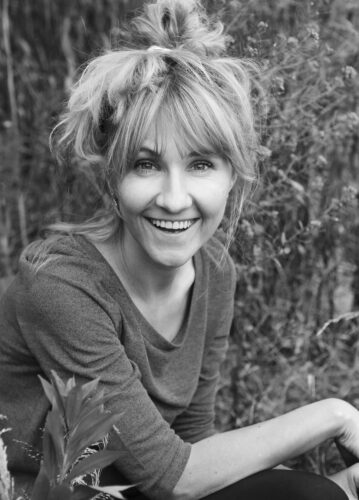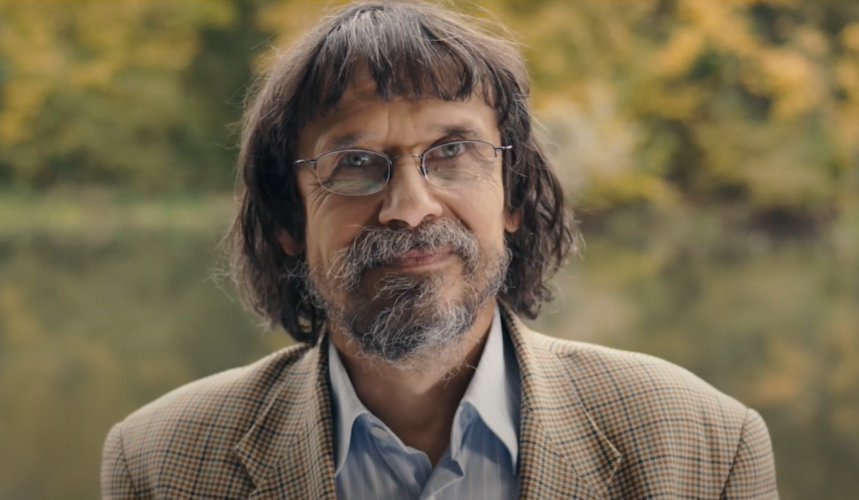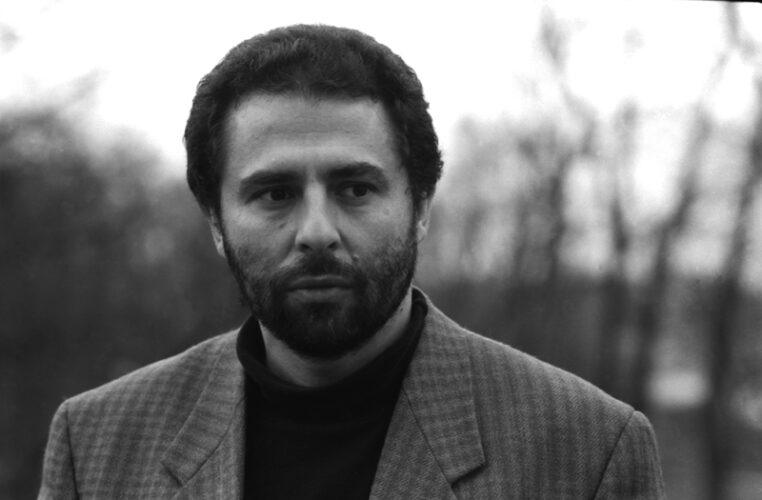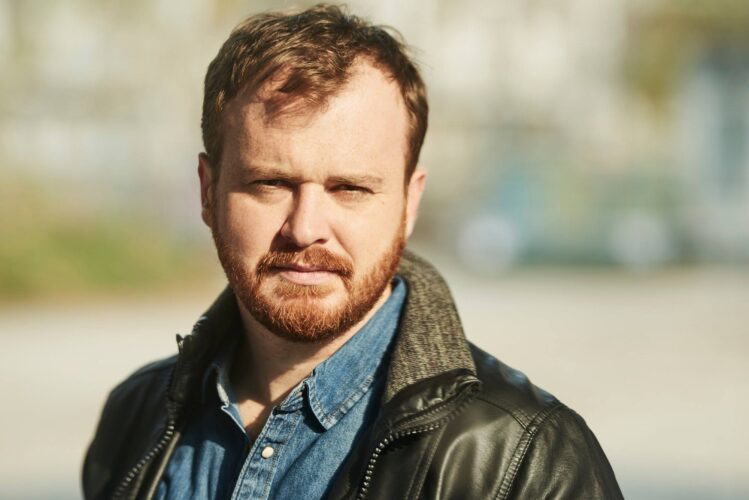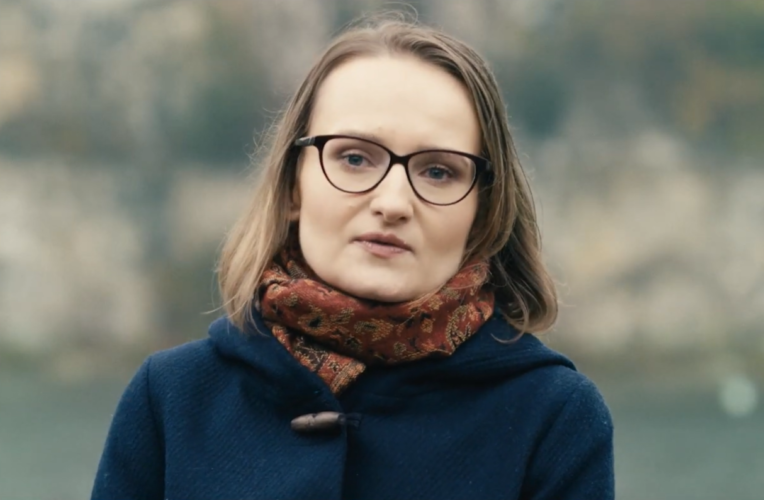Maciej Płaza
(born 1976) – prose writer and translator with a doctoral degree in humanities.
Author of a book about Stanisław Lem, a winner of the 2012 award granted by “Literatura na Świecie” magazine for his translation of H.P. Lovecraft’s short stories. His debut volume of short stories Skoruń (“Scallywag”, W.A.B. 2015) won him the 2016 Gdynia Literary Award and the 2016 Koscielski Foundation Award. The book was also in the final of the 2016 NIKE Award and was nominated for the Gombrowicz Award. His novel Robinson w Bolechowie (“Robinson in Bolechów”, W.A.B. 2017) was awarded the 2018 Angelus Central European Literary Award.
Anna Kamińska
(born 1980) writer, journalist, author of reportage, graduate of Polish philology at the University of Warsaw.
She published, among others, in ‘Gazeta Wyborcza’. She is the author of the following books: Odnalezieni. Prawdziwe historie adoptowanych (‘The Re-found. True Stories of the Adopted’, 2010) and best-selling biographies of Wanda Rutkiewicz Wanda (2017) and of Simona Kossak Simona (2015). For the latter, she was nominated for the Wiesław Kazanecki, the Mayor of Białystok Literary Award. She is also the winner of this award for her book Białowieża szeptem. Historie z Puszczy Białowieskiej (‘Bialowieza in a Whisper. The Stories from the Białowieża Forest’) published in 2017.
Wacław Holewiński
born in Warsaw in 1956, graduate of Law at the University of Warsaw, prose writer, playwright, literary critic, publisher, editor. From the 1970s to the 1980s, he was active in the anti-communist opposition.
From 1977, he was a collaborator of the Independent Publishing House, and from 1978 until the declaration of martial law, he managed the Independent Publishing Cooperative I. From March 1981, he was an employee of the National Coordination Committee of the Independent Students’ Union. From January to August 1982, he was interned. In December 1982, together with Jarosław Markiewicz, he founded “Przedświt”, one of the most important underground publishing houses of the 1980s. In May 1984, he was arrested; he was released by virtue of amnesty in August the same year. After 1989 (until 2001), he continued the activity of “Przedświt” publishing house. In 1995, in a gesture of protest, he resigned from work at the Warsaw prosecutor’s office.
He is a prose writer penetrating the ‘uncharted areas of Polish history’ (Marek Nowakowski). He published his first novel Lament nad Babilonem (Lament over Babylon) in 2003 and received a distinction award in the competition for the Józef Mackiewicz Literary Award. In this book, as one of the first authors in Polish literature, he portrays one of the Cursed Soldiers, breaking the stereotypes and clichés accumulated around this subject, referring, at the same time, to the model of realistic prose, successfully combining facts and even documents with fiction. Simultaneously, he renewed the convention of the biographical novel. In this novel, the plot is based on the fate of the main character, Tadeusz Danilewicz, but shown in a non-linear, snapshot, quasi-film way, creating a specific mosaic reflecting the drama of an individual in history, but also the opaque essence of history, especially of 20th century Poland.
History was the background of Holewinski’s subsequent novels and stories, in which, based on often fragmented accounts and documents, he reconstructed the dramatic fate of people rebelling against totalism, fighting for freedom, rebellious, uncomfortable, faithful to their values. At the same time, he asked questions about the importance of such values as honour, faith, Polishness, patriotism, courage, but also, for example, betrayal.
In the novel Opowiem ci o wolności (Let Me Tell You About Freedom), awarded with the Józef Mackiewicz Literary Award, he described the parallel biographies of two young Polish women, NSZ (National Armed Forces) soldiers, who fought in the Second World War against Germany, and were imprisoned after the war by the Secret Police. The protagonist of the novel Honor mi nie pozwala (Honour Does Not Allow Me) is Stanisław Ostwind-Zuzga: a Jew, legionnaire, policeman, soldier of the National Armed Forces and the National Military Union, one of the first victims of Secret Police. In the novel Szwy (Stiches) and short stories from the volume Nie tknął mnie nikt (No One Touched Me), modern Polish history and questions about the consequences of not having dealt with the reality of communism appeared.
The issues of the artist, art, and its relation to everyday life, as well as the vivid picture of the era, dominate the biographical novel Droga do Putte (Road to Putte) devoted to the Flemish painter Jordaens. On the other hand, in the psychological dramas from the volume Dyfuzja (Diffusion), the writer mainly analysed human attitudes towards evil.
Holewiński also engages in literary criticism. In the 1990s, he was a reviewer at ‘Gazeta Polska’, he also discussed the latest literature on Wnet Radio. From June to October 2016, together with Katarzyna Wójcik, he ran the literary program The Master and Catharina on Polish Radio Three. From October 2016, he has been the deputy head of the literary editorial office at Polish Radio Two. He also runs a reviewing column Mebluję głowę książkami (I Furnish My Head With Books) on the portal pisarze.pl. He is a member of the Polish Writers’ Association (he was the deputy head of the organisation in 2008-2011), the Polish Journalists’ Association, as well as the Free Speech Association.
Bronisław Wildstein
(born 1952) – journalist, columnist, novelist and activist in the democratic opposition, who spent the 1980s in emigration in France. After returning to Poland he worked as a journalist for newspapers including Życie and Rzeczpospolita and for the weekly Wprost. In May 2006 he became head of TVP, Poland’s main public television channel, but was dismissed in March 2007 for political reasons.
The theme of his own generation occupies an important place in Wildstein’s fiction; almost as it was happening he aimed to describe the experiences of the opposition activists who were forced to leave Poland in the 1980s (e.g. in his roman à clef The Brother), and he has also described how they coped in the new situation, in independent Poland, where the world ceased to look quite so black and white, and life became much more complicated, bringing the former heroes of the opposition a lot of disappointment (as in his collection of short stories, Future Limited). Wildstein has also tried to tackle other topics; On Betrayal and Death is set in Alexander the Great’s empire following the death of the ruler, and the main character in The Master is the guru of Polish alternative theatre, Jerzy Grotowski. Wildstein has used various styles in his fiction, starting with more avant garde writing full of metaphors where the descriptive level was the most important thing, then gradually progressing towards classic narrative forms.
Regardless what he writes about and how he does it, whether newspaper articles or fiction, Wildstein never loses sight of the universal, fundamental issues. As Stanisław Obirek says: “Wildstein’s writing is a bit like black-and-white photography. Of course, it does not lack shadows and grey areas, but it is free of any deceptive wealth of colours and makes the reader think about what really matters.”
Wojciech Chmielarz
Born in 1984, he is a detective novelist and a journalist, winner of the High Caliber Award (2015). He is also editor-in-chief of niwserwis.pl, which covers crimes, terrorism, and international security. He lives in Warsaw.
Regarded to be one of the most promising mystery writers of the younger generation, Wojciech Chmielarz has written a series of novels whose main protagonist is a Warsaw policeman, Commissioner Jakub Mortka. These are stories of police procedures with urban drama thrown into the mix. Mortka is a hard-boiled cop, dealing with post-divorce trauma, coping badly with his mood swings and endless financial problems. This is not a great obstacle to his work as an officer, however. And he has a lot on his hands, often dealing with several cases at once. A key element of the criminal intrigue in Chmielarz’s novels is bringing in hot media topics for the main themes; in The Doll Farm (2013) this is the sex trade, while in The Party (2014) it is drug smuggling.
Chmielarz has an interesting and true-to-life perspective on the work of the Polish police force, mainly focusing on its dark side: its underfinancing, omnipresent bureaucracy, and overworked policemen. As in every good urban detective novel, the city space is one of the novel’s protagonists. Chmielarz knows how to effectively interweave the city space with the action to make the criminal intrigue, as we see in The Party in the murder scenes and the chase on Krakowskie Przedmieście Street during a rally to commemorate the Smoleńsk catastrophe.
We ought also to mark Chmielarz’s style, based on short, spare sentences that perfectly correspond to the dynamic of the novels’ events.
Marta Kwaśnicka
Born in 1981 in Katowice. Philosophy and archaeology graduate at the Jagiellonian University in Cracow, essayist, literary critic, prose writer, Spanish language translator, and blogger. In 2010, she defended her doctoral thesis at the Faculty of History and Cultural Heritage at the Pontifical University of John Paul II in Cracow. Since 2014, she has worked as a lecturer at the Intercollegiate Institute for Church Music at the Pontifical University of John Paul II.
She made her debut on the pages of “Topos” in 2004. She gained recognition from the critics mainly as an author of erudite, subtle, and innovative essays on the relations of art, religion, and existence, which refer to the essayist tradition of Herbert, Herling-Grudziński and Kijowski. Her debut collection of sketches Krew z mlekiem (Blood with milk), which received, inter alia, the Identitas Literary Award and the Feniks Catholic Publishers Association Award, is a story about private fascinations with European and Polish art, from the Middle Ages to the 20th century. Kwaśnicka’s portraits of artists, sometimes forgotten or little-known, as well as insightful analyses of literary, painterly, and architectural works remind us of the spiritual and metaphysical sources of European culture, its Christian foundations, and they often become an excuse for existential and theological reflection. On the other hand, Jadwiga, awarded Skrzydła Dedala Literary Awards (Daedalus’ Wings Literary Award) by the National Library, is not only an essayistic biography of the eponymous heroine, a catholic saint, the Queen of Poland, and at the same time an independent and outstanding woman, but also a portrait of Cracow as well as a polemic against romantic tradition.
Kwaśnicka practices literary criticism, mainly on her blog about culture (kwasnicka.kresy.pl) started in 2011, where she discusses chiefly the latest Polish prose. She is also an author of poems and short stories published in the press. She published in “Topos”, “Arcana”, “Fronda”, “44/Czterdzieści i Cztery”, and “Akcent”, to name a few. She is a “Młoda Polska” (‘Young Poland’) Programme scholar. She published two scientific monographs on the history of the Society of Jesus. Since 2010, she has been cooperating with portal Polskieradio.pl. She lives in Cracow.
